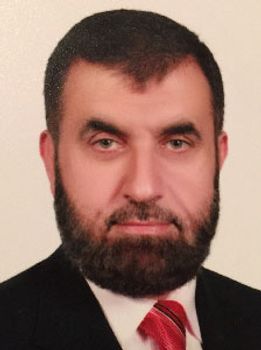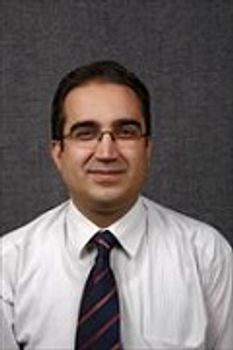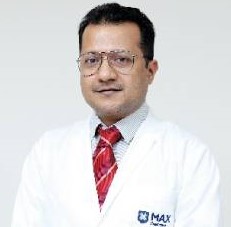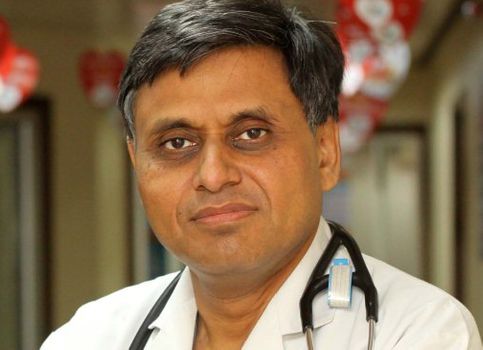Know your Cardiology Doctor: Different types of heart doctors in India
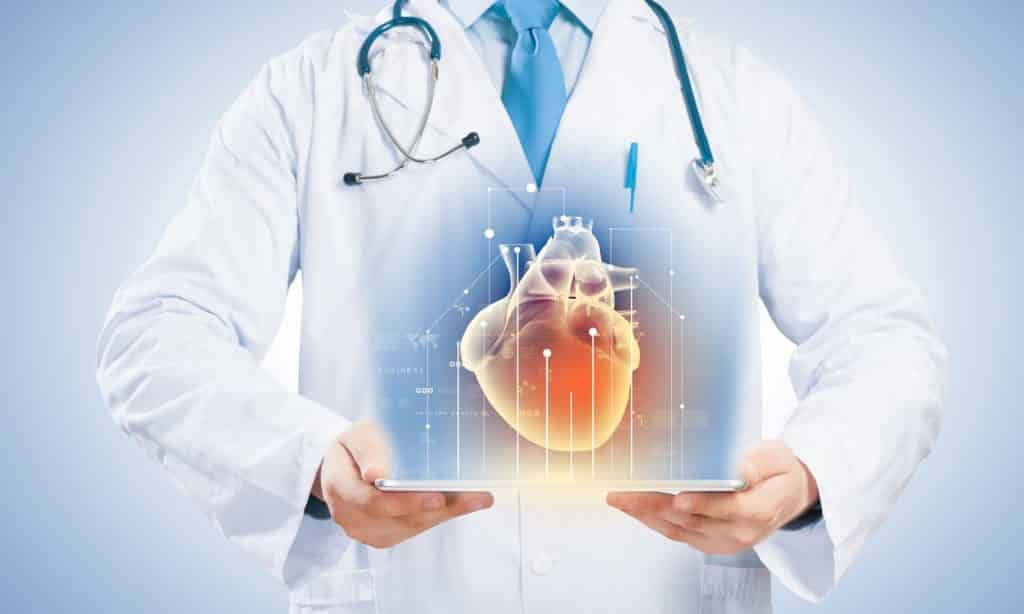
Cardiology/Heart Doctors in India
It goes without saying that the heart is our most vital organ. It pumps oxygen-rich blood to the parts that need it and transports the oxygen-drained blood back to the lungs throughout your life. Seeing how the heart keeps your body running, it is of utmost importance that significant care is taken in ensuring its efficiency. This has led to the rise of cardiac specialists, also known as heart doctors, who serve the purpose of maintaining the health of this elaborately structured organ. They study the heart, prevent, diagnose, and treat any heart ailments or failures like heart failure, cardiac arrest, and coronary heart disease. These specialists are further divided into several sub-categories, each serving an important role in determining the optimum path to providing you with the care your heart needs.
Some treatments would require diagnosing and supporting the patients, but others require a more invasive approach where surgery and other invasive procedures are needed to treat the patient e.g.: heart surgery. There are also research-based positions where better methods to treat the patients are worked on. Some cardiac doctors are also responsible for treating patients with ongoing cardiac problems while others are in search of emergency treatments, providing critical health care when the patient needs it the most, like life-threatening conditions.
Cardiology in India
Being one of the biggest countries in the world, the need for world-class healthcare was not overlooked in India. With access to the latest innovations, combined with the unmatched expertise of leading cardiologists and cardiothoracic surgeons, Indian healthcare standards have skyrocketed, attracting patients not just from within the country, but also from various international destinations. They also offer surgery to high-risk patients with the introduction of innovative techniques helping make the procedure minimally invasive. The high-quality cardiac healthcare is still available at a fraction of global costs with similar if not better clinical outcomes.
The top Indian hospitals are equipped with state-of-the-art equipment and the best of doctors and surgeons, specialising in cardiology and heart-related treatments to provide the latest clinical procedures like interventional cardiac catheterisation and surgical cardiac transplants. With an average success rate of 98.50 per cent - on par with leading cardiac centres around the globe - the results speak for themselves.
Medical centres specialising in cardiology are also equipped with cardiac care units, and state-of-the-art investigative facilities like Echocardiography, Colour Doppler, Coronary Angiography, and Nuclear Scanning. Here is a quick checklist to know your cardiology doctor: different types of heart doctors in India.
Non-Invasive Cardiologist
A Non-Invasive Cardiologist focusses on a wide range of cardiology procedures that do not involve heart surgery. Majority of their work comprises of office-based work, namely performing cardiology consultations and running patient clinics. Their responsibility is mainly to support the patients in preventing, diagnosing, and managing any potential heart problems.
Some of the tests a Non-Invasive Cardiologist performs are echograms, ECGs, cardiac tests, and Nuclear Tests - a specialised procedure where a stream of radioactive dye is injected into the patient’s bloodstream and the resulting heart map is photographed using a special ‘nuclear camera’. Non-Invasive Cardiologists interpret the test results and advise the patient of his/her options. The extent of their support to the patient depends on the level of the disease severity. If it is manageable, the doctor continues the treatment through patient support and prescription medicine. If the condition remains unchanged or progresses, the patient is further introduced to an appropriate cardiac specialist
Invasive Cardiologist
The responsibilities of an Invasive Cardiologist include everything that of a Non-Invasive Cardiologist, and additionally, they are also trained in cardiac catheterisation and other minor procedures or surgeries. If by diagnostics, any arterial blockages are detected, the patient is referred to an Interventional Cardiologist for any additional procedures which may include an introduction of specialised endovascular products like stents, coils or balloons to remove any blockages in the blood vessels.
Interventional Cardiologist
One of the sub-type of Invasive Cardiology is Interventional Cardiology. When the patient is required to undergo more advanced procedures than Invasive and Non-Invasive Cardiology, an Interventional Cardiologist is referred. They are required to perform a range of cardiology tasks, including invasive procedures like heart catheterisations, stent replacements in closed or diseased arteries, plaque removal (atherectomy), valve repairs, placing mesh stents into narrowing arteries, and balloon angioplasty to open blocked arteries.
At times, although not very often, Interventional Cardiologists will have to perform some non-invasive procedures. Some even get involved in transesophageal echocardiograms and pericardiocentesis.
Apart from the direct work they do by treating patients, they also spend a part of their job in the office. They are required to keep up to date. This involves keeping up to date with paperwork, performing prerogative and follow-up consultations with their patients.
Cardiac Surgeons
The overarching sub-type of Invasive Cardiology is Cardiac Surgery or Cardiothoracic Surgery. Over their years of experience, surgeons can obtain additional qualifications to become a specialist cardiologist. They are called when a major operation is required for the heart, major blood vessels, veins, and arteries. Most common surgeries performed by Cardiac Surgeons include Cardiac Valve Replacements, Cardiac Bypass Surgery (CABG), Correction of Congenital Cardiac Malformations, Aneurysmal coiling and Arterial bypass procedures.
Electrophysiologist Cardiologist
The responsibilities of an Electrophysiologist Cardiologist include a range of tasks. Electrophysiology involves the study of the heart’s bio-electrical impulses, from which vital information about a patient’s cardiac health can be obtained. The study helps identify irregular heartbeats (known as Arrhythmias or Dysrhythmias) and other problems that may lead to cardiac arrest. They may do practical work to install pacemakers and defibrillators, echocardiography, and electrophysiology work to map the heart’s electrical activity. They perform treatments to selectively destroy abnormal electrical pathways, like Radiofrequency Ablation (RFA), Cardiac Pacemaker insertion etc. They may also administer medication to manage a patient’s heart irregularities and treat heart failure.
Other specialist cardiology positions
Apart from the most common cardiology positions as described above, some hospitals and medical organisations have other specialist cardiologists like:
Heart Failure Cardiologist – As the name suggests, a Heart Failure Cardiologist specialises in treating patients with heart failure and ensures comprehensive management of their health as other organ systems tend to get affected in cardiac failure.
Imaging Cardiologist – An Imaging Cardiologist works with a wide range of imagery relating to the heart. This includes reading and interpreting cardiac echocardiograms, cardiac CT scan images, MRI scans, and cardiac stress test results.
Paediatric Cardiologist – A Paediatric Cardiologist is involved in helping children with heart problems.
Transplant Cardiologist – A Transplant Cardiologist specialises in patients who need or have had heart transplants. They would usually be the cardiac surgeons who have specialised in transplant techniques.
Are these cardiology departments mutually exclusive?
Cardiologists don’t always specialise in a single area of cardiology. Many cardiology positions are more general and combine a wide range of specialisations.
There is also a lot of overlap and crossovers between the specialisms. For example, Electrophysiologist Cardiologists do both general cardiology consultations and specialist work with patients suffering from electrophysiology problems.
Which are the best heart hospitals in India?
Fortis Escorts Heart Institute and Research Center, Delhi
One of the pioneers in dedicated cardiac care, Fortis Escorts is a popular name in Asia-Pacific. Fortis, to date has several ground-breaking works in the field of cardiology to its name. The hospital has more than 200 expert doctors and over 1,600 well-trained para-medical staff. It handles over 14,000 patients every year.
Asian Heart Institute, Mumbai
A popular name among leading Indian heart hospitals is Asian Heart Institute in Mumbai. The hospital is equipped with the best-in-class treatment facilities and state-of-the-art equipment. It also boasts of a success rate of 99.3% for bypass surgeries and 99.83% for cardiac surgeries.
Apollo Hospital, Chennai
Even though there are many branches of the popular Apollo chain, it’s Chennai heart centre has transformed cardiology treatments in India. Some of the best cardiologists in India ply their trade here. The hospital has performed more than 1,40,000 heart surgeries till date.
Nanavati Super Speciality Hospital, Mumbai
One of the oldest hospitals in Mumbai, Nanavati Super Speciality Hospital, has now expanded its capacity to 350-bed hospital. The hospital also boasts of the latest diagnostic facilities like Magnetic Resonance Guided Focused Ultrasound - MrgFUS, 64 slices PET-CT scan, High Intensity Focused Ultrasound, etc. and also offers advanced technique surgeries like minimal access bypass surgery.
Manipal Hospital, Bengaluru
Manipal Hospital in Bengaluru (formerly Bangalore), is one of the largest centres in India which provides complete care for heart patients. With its hi-tech facilities and advanced equipment, the hospital has been successful in treating some complex cases.
Artemis Hospital, Delhi
Located in the Dwarka region of Delhi, Artemis Hospital is a multi-speciality hospital. Even with all the range of services it offers, it is specially known for its cardiology department, which is managed by some of the best heart surgery doctors in India.
The Wockhardt Heart Institute, Mumbai
A multi-speciality hospital located in the city of Mumbai, Wockhardt Heart Insitute is a dedicated unit of the Wockhardt Hospitals, which specifically looks after the treatment and care of cardiac disorders. The institute offers some of the latest surgeries and treatment procedures like coronary artery bypass graft, balloon angioplasty, cardiac catheterization, valvuloplasty, etc.
BLK Heart Center, Delhi
The BLK Heart Center, located in the heart of Delhi, is a dedicated facility established by the BLK Super Speciality Hospitals to look after heart patients. It is one of the largest of its kind in India. The hospital is hugely popular with patients from around the world for its quality clinical services and superior outcomes and regularly receives patients for treatment from the Middle East, Asia Pacific and Europe, etc.
Medanta Heart Institute, Delhi NCR
Like all other popular Hospitals, Medanta The Medicity in Delhi NCR, near Delhi, also has its own dedicated Heart Institute. They have an experienced team of cardiologists, heart surgeons, radiologists and para-medical staff which provides a comprehensive healthcare solution to heart patients. The hospital is spread across 43 acres of land and has 1,250 beds for patients.
Narayana Health, Bengaluru

The Narayana Health hospital’s national network has its headquarters in Bengaluru. The chain of Hospitals which started from 225 operational beds has now grown to 22 hospitals and 7 heart centres across India and 1 hospital in the Cayman Islands. Their expert team of doctors, surgeons and medical staff are well trained in the latest techniques and practices. The ‘Narayan Health’ brand has been consistently working on its mission to deliver high quality and affordable healthcare services to the larger population by leveraging their economies of scale, skilled doctors, and their efficient business model.
To know more about cardiology practices in India, the best surgeons and doctors as well as best heart hospitals in India, you can contact us by filling a small form here.










